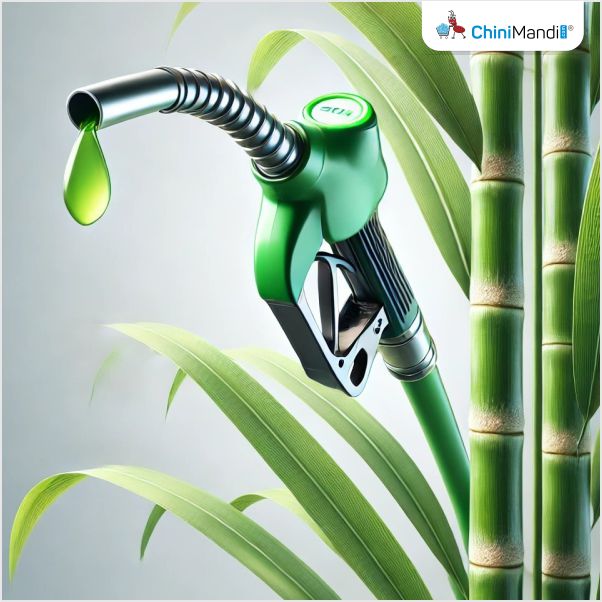Sugar stocks surged in morning trading on September 2 after the Indian government permitted sugar mills and distilleries to produce ethanol from sugarcane juice, sugar syrup, B-heavy molasses (BHM), and C-heavy molasses (CHM) during the Ethanol Supply Year (ESY) 2025–26 without any restrictions.
In a circular issued by the Department of Food and Public Distribution (DFPD) to sugar mills and distilleries, it was stated that sugar mills and distilleries are allowed to produce ethanol from sugarcane juice/sugar syrup, BHM, as well as CHM during ESY 2025–26 without any restrictions.
DFPD, in coordination with the Ministry of Petroleum and Natural Gas (MoPNG), will periodically review the diversion of sugar to ethanol production vis-a-vis production of sugar in the country so that availability of sugar for domestic consumption is ensured throughout the year.
Following the announcement, shares of sugar companies rose sharply. Shree Renuka Sugars jumped more than 14% to ₹32.87. Bajaj Hindusthan Sugar climbed up to 10%.
Uttam Sugar Mills saw a surge of over 12%, with Dhampur Sugar Mills up more than 13%. Triveni Engineering gained 4.5%, and Dwarikesh Sugar stocks was up approximately 12%.
In a related development, the Supreme Court on the previous day dismissed a petition challenging the nationwide rollout of 20% Ethanol Blended Petrol (EBP-20).
Attorney General for India R Venkataramani opposed the petition saying that the petitioner was only a “name-lender” and that there was a huge lobby behind him. He asserted that the Government has framed the policy after considering all aspects. AG said that the policy was benefiting India’s sugarcane farmers. “Will people outside the country dictate what kind of fuel India should use?”, AG stated. After the AG’s submission, the CJI pronounced, “Dismissed.”
The Government’s Ethanol Blended Petrol (EBP) Programme is aimed at multiple goals, including enhancing environmental sustainability, reducing dependency on crude oil imports, saving foreign exchange, and supporting the domestic agricultural economy. As a result of this initiative, more than ₹1.25 lakh crore has been paid to farmers from Ethanol Supply Year (ESY) 2014–15 up to July 2025. Additionally, the programme has saved over ₹1.44 lakh crore in foreign exchange, reduced carbon dioxide emissions by approximately 736 lakh metric tonnes, and replaced over 244 lakh metric tonnes of crude oil.


















